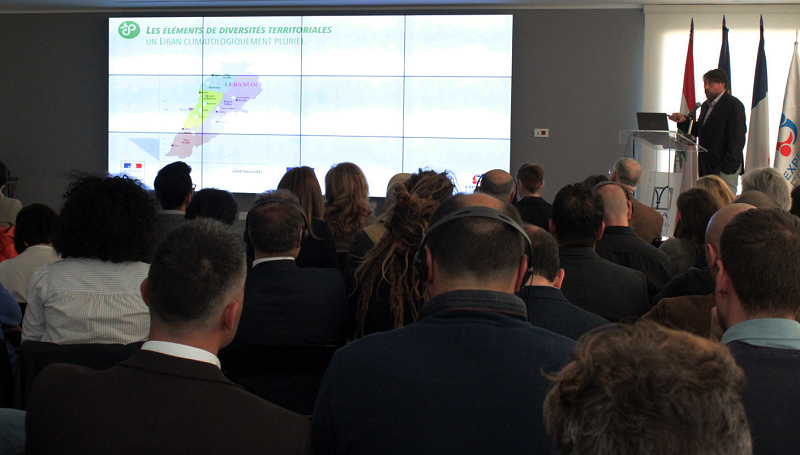The challenges of quality for agriculture in Lebanon
The event gathered more than 80 participants mainly from producers, farmers, and exporters from the agricultural and agri-food sectors, as well as governmental authorities, donors’ community, representatives from related organizations, academics, and researchers.
The discussions were open by Virginie Cossoul, Commercial and Economic Attaché at the Delegation of the European Union to Lebanon, Valerie Vion, Regional Agricultural Advisor at the Agriculture Department of the Economic Service at the French Embassy in Lebanon, and Julien Schmitt, Team Leader of the Private Sector Development Program developed by Expertise France.
Cécile Franchois, INAO (Institut National de l’Origine et de la qualité) expert, and Olivier Nasles, wine maker and organic olive grower, have presented the importance of the Geographical Indications which, by insisting on the link between the product and its place of production, make it possible to protect the producers from the counterfeits, to gain added value and thus to preserve the rural employment while reassuring the consumers on the quality of product they are buying.
Kanj Hamade, researcher at the Lebanese University presented the market of quality products in Lebanon and indicated that while there are not yet any Geographical Indications in Lebanon, in the absence of effective legal framework to date, a large number of Lebanese products could benefit from this recognition. Said Gedeon, deputy general manager at the Chamber of Commerce, Industry and Agriculture in Zahleh explained the process of the Integrated Crop Management (ICM) certification project developed within the Private Sector Development Program. According to Gedeon, this local certification is the first step for producers to ensure the quality and standards of their products.
Fabrice Guiberteau, technical director and oenologist of Château Kefraya, explained the elements of Bekaa's territorial diversity, which would allow the establishment of Geographical Indications, particularly in the wine sector.
A panorama of the Lebanese organic farming sector was drawn up by Pauline Eid, head of this sector at the Ministry of Agriculture, supported by the testimonials of Roudy Daoud (organic vegetable garden / La Vie Claire) and Mario Massoud (Biomass) who outlined their vision and strategy for the organic sector.
Charles Hage, from JAZ Development, showed the positive impact of quality standards on ecotourism and the role of ecotourism as a factor of territorial development.

All stressed that one of the main challenges for the creation of GIs in Lebanon is to set up joint actions between producers within a fragmented cooperative sector.
To conclude the presentations, Emilie Vandecandelaere, expert on the subject of Geographical Indications at FAO presented examples of projects implemented in different countries and continents, highlighting more specifically the key factors of their success.
Last but not least, the event ended with an animated Q & A session that demonstrated the interest for the subject and the willingness of many professionals to set up pilot projects in Lebanon.

 More about the PSD-P : www.psdplebanon.com
More about the PSD-P : www.psdplebanon.com


